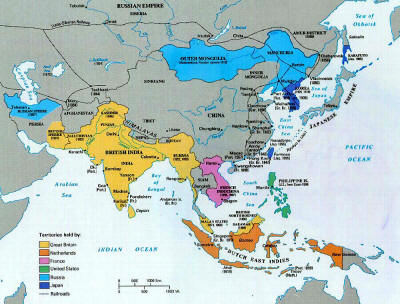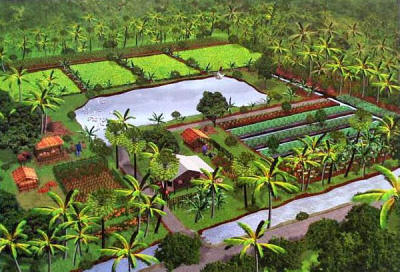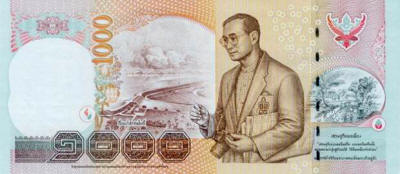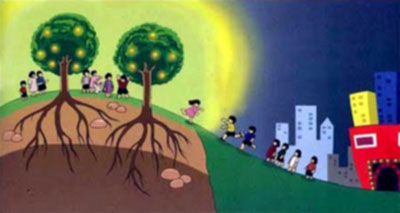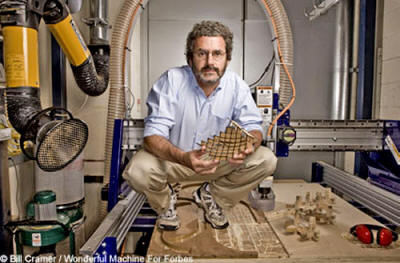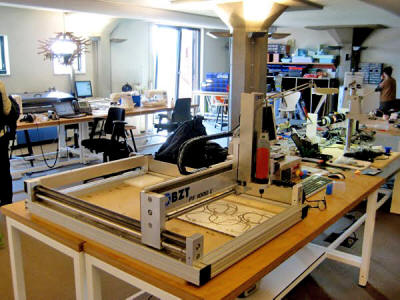|
by Tony Cartalucci
Indeed, thousands of people,
At best, all a protest will lead to, while we are so hopelessly dependent on this system, is a round of musical chairs inside the political arena, with perhaps superficial concessions made to the people.
The vector sum however,
will still be decidedly in favor of the global corporate-financier
oligarchy.
We should also realize that any activity we
commit ourselves to must be directed at this corporate-financier oligarchy
rather than the governments they have co-opted and positioned as buffers
between themselves and the masses.
However, worldwide globalist coup d'etats
have occurred before - for example, in the late 1990's under the guise of a
"financial collapse" and IMF "restructuring."
To illustrate how this works, it may help to understand
what real colonialism looked like.
Thailand's geopolitical surroundings 1800-1900. Thailand was
Thailand in the 1800's, then the Kingdom of Siam, was surrounded on all sides by colonized nations and in turn was made to concede to the British 1855 Bowring Treaty.
See how many of these "gunboat policy" imposed concessions sound like today's "economic liberalization:"
A more contemporary example for comparison would be the outright military conquest of Iraq and Paul Bremer's (CFR) economic reformation.
The Economist gleefully enumerates the neo-colonial "economic liberalization" of Iraq in a piece titled "Let's all go to the yard sale: If it all works out, Iraq will be a capitalist's dream:"
In fact, the
IMF
itself publishes reports at great length concerning the "necessity" of
economic liberalization.
Brookings Institute's Kenneth Pollack already made it quite clear that,
Siam eventually rolled back the terms of the 1855 Bowring Treaty as the
British Empire waned, but as of 1997, Thailand was once again faced with
similar terms, dictated this time by
the banksters of the IMF.
Fiercely independent and nationalistic, and being the only nation in Southeast Asia to avoid colonization, Thailand's sovereignty has been protected for over 800 years by its revered monarchy. The current dynasty, the House of Chakri, has reigned nearly as long as America has existed as a nation and the current king is regarded as the equivalent of a living "Founding Father."
And just as it has for 800 years, the Thai Monarchy today provides the most provocative and meaningful answer to the threats facing the Kingdom. The answer of course is self-sufficiency.
Self-sufficiency as a nation, as a province, as a community and as a household.
This concept is enshrined in
the Thai King's "New Theory" or "self-sufficiency economy" and mirrors
similar efforts found throughout the world to break the back of the
oppression and exploitation that results from dependence on
the globalist
system.
A vision of self-sufficiency in Thailand. Agrarian values and the
The foundation of the self-sufficiency economy is simply growing your own garden and providing yourself with your own food.
This is portrayed on the
back right-hand side of every 1,000 baht Thai banknote as a picture of a
woman tending her garden. The next step is producing surplus that can be
traded for income, which in turn can be used to purchase technology to
further enhance your ability to sustain yourself and improve your
life-style.
The Thai 1000 baht banknote. Left is one of the many dams controlling
The New Theory aims at preserving traditional agrarian values in the hands of the people.
It also aims at preventing a migration from the countryside into the cities. Preventing such migrations would prevent big agricultural cartels from moving in, swallowing up farming land, corrupting and even jeopardizing entire national food supplies (see Monsanto).
Those familiar
with the UN's
Agenda 21, the more recent UN "Climate Change Program," and
the globalist "end game" may understand the deeper implications and dangers
of such a migration and why it needs to be stopped.
The
effects of economic catastrophe are also greater in a centralized,
interdependent society, where everyone is subject to the overall health of
the economy for even simple necessities like food, water, and electricity.
A slide presenting the "New Theory" depicting a manifestation
Under the "New Theory," demonstration stations all across Thailand have been created promoting education in matters of agriculture and self-sufficient living.
The program is competing against the contemporary globalist system, which as of now, is mired in many parts of the world with economic meltdown. The relatively self-sufficient nature of Thais in general has weathered this economic chaos fairly well. In 10 years, a plate of food still costs the same amount of money, as do many everyday commodities.
This only further
vindicates the value of being self-sufficient and now more than ever, in
both Thailand, and abroad, it is a good time to get involved and get
self-sufficient.
Their response to this, as it
has been with all of Thailand's habitual displays of defiance is something
to behold.
It states that the economic plan is,
The Economist muddles the debate by side-stepping the self-sufficient aspects of the "self-sufficiency economy."
It claims that socialist handouts under deposed Prime Minister and
notorious globalist stooge
Thaksin Shinawatra somehow accomplished the exact
same goals. The Economist also claims the concept of self-sufficiency is
merely a "rebranding" of such socialist handouts.
Socialism could only be useful as a stop-gap
measure between current problems and the active pursuit of technical
solutions. However, the goal of globalization is to create interdependency
between states, and total dependency on global institutions, therefore,
perpetuating problems, not solving them becomes the equation.
The blog itself
is a clearinghouse for globalist talking points regarding Southeast Asia.
Some "contributing writers" even include Thaksin Shinawatra's hired
lobbyist,
Robert Amsterdam.
He suggests that,
As with the Economist, the article breaks down into a pro-Thaksin rant
claiming the entire plan is meant to keep the rural population of Thailand
in their place, out of the cities, and thus out of the debate of national
issues.
Academic wonks like Andrew Walker presume the height of empowerment is feeding a paper voting stub into a box, on your way home from a service sector job, and then relaxing behind the glow of a new plasma screen TV bought on credit.
A more likely argument would be that sustaining
your own existence, wrought from the land beneath your feet, and the ability
to shape the world around you with an understanding of science and the
mastery of multiple trades is the height of empowerment and the truest form
of human freedom.
Reading the "Red
Siam Manifesto" penned by "red shirt" intelligentsia Giles Ungpakorn makes
it quite clear how they view "self-sufficiency" and the need to "reform"
Thailand as a socialist welfare state.
Since 2006, he has been represented by,
To say that Thaksin Shinawatra and his "red shirts" have foreign backing is
a profound understatement.
Prachatai was recently nominated for the
Deutsche Welle Blog Awards by the
"Neo-Con" infested Freedom House, upon
which former Thaksin lobbyist
Kenneth Adelman sits as a member on the board
of directors.
Freedom House "tweets" their March 11, 2011 nomination of NED
The globalists know what's going on already and they are moving against it while the majority of humanity still sleeps in ignorance and apathy.
Thailand is but one nation of many, in China's "String of Pearls" that is targeted for destabilization and US State Department sponsored "liberation." The key to stopping the globalists dead in their tracks is seizing back from them the mechanisms of civilization - and we have done that already in terms of the alternative media.
Such success is necessary in all aspects of our
life, and as the King in Thailand suggests, it can start with something as
simple as growing your own garden.
Even in the city, small independent businesses are adopting the latest technology to improve their production, increase their profits, and even out-compete larger corporations.
Computer controlled machining equipment can be found in small workshops crammed into old shop-houses, automatic embroidering machines allow a single woman to fulfill orders for name tags on new school uniforms - rather than both businesses sending off orders to factories owned by a handful of wealthy investors.
A multitude of examples can be seen
walking around any city block in Thailand's capital of Bangkok.
MIT's Dr. Neil Gershenfeld inside his "Fab Lab," arguably
Bringing this sort of technology to rural people, even enabling people to create their own technology rather than just employ it, is not just science fiction but is a reality of today.
MIT Professor Dr. Neil Gershenfeld has developed the "fabrication laboratory" or "Fab Lab."
The Fab Lab is a microfactory that can "make almost anything." His Fab Lab has since been replicated all over the world in what he calls the personal fabrication revolution.
It aims at turning a world of dependent consumers into
independent designers and producers.
Dr. Neil Gershenfeld presents his Fab Lab at TED.
Dr. Gershenfeld in his own words articulates the problem of finding support amongst institutions and governments, stating that individuals are very enthusiastic about this revolution,
This indeed not only encapsulates Dr. Gershenfeld's dilemma, but describes to a "t" the mentality of oligarchs and the fears they harbor about empowering the people, a fear reflected in the "organizational boundaries" of their corporations and governmental institutions.
This is a feature of
oligarchy described as early as 300 B.C. in ancient Greece in "The Athenian
Constitution." In it, a character referred to as "the Old Oligarch"
describes his contempt for the social mobility the technology of the
Athenian navy affords the lower echelons of Athenian society.
Dr. Gershenfeld concludes by conceding he thought such a
possibility was 20 years off, but "it's where we are today," noting the
success his Fab Labs are already having around the world.
The interior of a
"Fab Lab" in Amsterdam, featuring an
Dr. Gershenfeld's message resonates with the current culture of Thailand and the ambitions of the "self-sufficiency economy."
In many ways, Thailand's patchwork of micro-businesses, already successfully by-passing capital intensive centralized production, vindicates the work and optimism of Dr. Gershenfeld. It also, however, resonates strongly with the self-reliant traditions that had made America great.
The technical possibility for this
to change the world is already a reality, but Dr. Gershenfeld himself
concedes that the biggest obstacle is overcoming social engineering - in
other words - creating a paradigm shift in the minds of the population to
meet the technical paradigm shift that has already taken place.
Simply boycotting the globalists' corporations and replacing them with local solutions is something everyone can afford to do starting today.
And by simply looking into Dr. Neil Gershenfeld's "Fab Lab," raising awareness of the personal fabrication revolution, and even in the smallest way participating can help overcome the obstacle of social-engineering and spur a profound paradigm shift. We have begun to seize back the media, now it is time to seize back the other levers of power.
Now is the time to recognize true freedom
as being self-sufficient
as a nation, as a community, and as a household, and start living it
everyday. |

